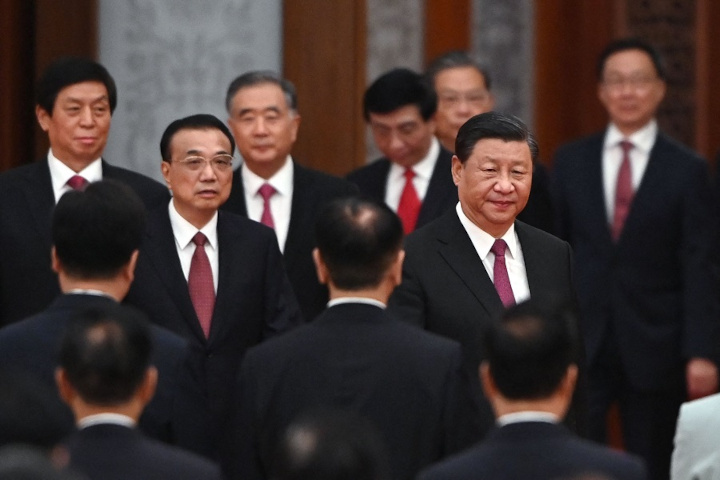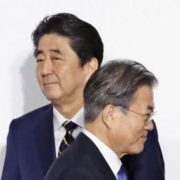
Photo: Greg Baker/AFP
On February 18, Hunan Party Secretary Shen Xiaoming delivered an eloquent speech[1] to local cadres, urging the entire province to liberate itself from:
- «The existing mindset, work inertia, and path dependence
- The vicious competition of self-centeredness and involution
- The fear of looking ahead and backward
- Being afraid of this and that
- Being willing to live in the middle of the stream».
- The state of being willing to settle in the middle with no major differences.
The argument illustrates that China is in a complicated loop. The same Hunanese who delivered and received the message must know it’s mostly useless.
In fact, cadres were proactive under Deng because he allowed them to have power and money. This worked for a while, but then it led to corruption during Jiang Zemin’s times.
Why should an official be proactive now that the money aspect has been taken away? If he can’t obtain money and faces the risk of making mistakes, then there’s no upside, only downside in being proactive. Nevertheless, he won’t rebel and will instead hold on to the system because it gives him power, but not more than that.
To be proactive in these conditions, one must be an idealist. However, if you’re an idealist, you might be against the party or against Xi. Or, if you are pro-party, pro-Xi, and an idealist, you might be a fanatic, and a fanatical official poses a different set of problems. Incidentally, so far, there is little trace of real fanaticism; just a lot of pretended fanaticism.
China should have adopted massive systemic reforms long ago to address these problems. But it didn’t because there was no urgency at the time. Reforming now is hazardous and complex, and the results are more uncertain. Moreover, the same officials chafing under these reeducation cycles fear reforms that would take away or just dent their small power. Despite this, they remain inactive due to a lack of incentives and a plethora of disincentives.
Therefore, the system is in a loop, where inaction is met by greater pressure from above. It’s all very exhausting, but there’s also a lot of resistance to changing ways. It creates a lot of entropy wasting a lot of resources. Tearing down large unsold apartment building that can’t be sold is a practical show of the existing troubles.
The same goes for the rich. They can take the money and run away or continue their business with more restrictions, but they are embedded in the system that keeps feeding them. They can’t move around as freely as before but have no genuine interest in a massive change that could endanger their position in the system.
Only a few on the fringes of the system want systemic changes, but they have little traction. Wealthy officials might wish to go back to Jiang’s times, but these times are gone, and they were rotting everything with their systemic corruption.
So, at least for now, the loop of empty exhortations and passive resistance will continue until something else happens.
In similar circumstances, the Roman Empire carried on for centuries. China is no Roman Empire, it can’t go on for centuries, but certainly, fissures are not tearing down the wall for now; on the contrary, they might give elasticity to it.
In all of this, the main driver becomes the propaganda effort, in the hands of two of President Xi Jinping’s most trusted liutenants, Cai Qi, head of the Party secretariat, and Li Shulei, propaganda chief.
Relying on propaganda can be a stale strategy, but the party has found new, effective, and efficient ways to deliver its message, and this, for the time being at least, will help.
[1] Thanks to David Kelly for his incredible work https://docs.google.com/document/d/1GueSoCY-XrjtehFQS9BR22LgGPjf4Gac9B-n9QDz-Mg/edit#heading=h.p506qubo3ys3





